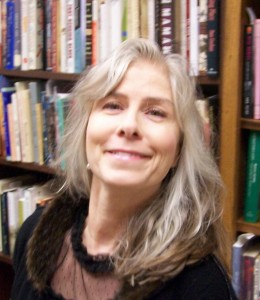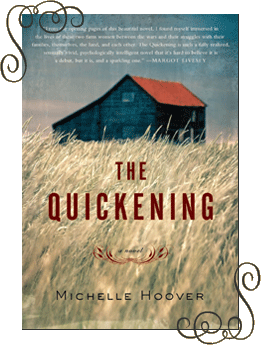
Issue 7 contributor George Estreich recently published a new memoir, The Shape of the Eye, in which he describes the blessings and challenges of raising his daughter Laura, who was diagnosed with Down Syndrome. Estreich is known for his book of poems, Textbook Illustration of the Human Body, which won the Rhea and Seymour Gorsline Prize from Cloudbank Books.
While writing Shape of the Eye Estreich was faced with new challenges, both technically and personally. Having a strong background in poetry, Estreich found writing a memoir to be both a foreign and familiar experience: “When I wrote poems, I was mainly concerned with language, line by line and word by word […] In a way, I was still writing poetry, trying to get each sentence right, to find the right word and metaphor and form. At the same time, those formal choices became part of a larger goal.”
Creative nonfiction can have its own challenges, especially when the topic is so personal. Estreich commented on that intimate quality of Shape: “It’s odd to have written so much autobiographical work, in poetry and prose, because I think of myself as a private person. So there was a tension between necessary truth-telling and privacy. Also, if one is writing about people one cares about, and one acknowledges that true stories can do harm to relationships, then writing and family are in tension too. Storytelling is an ethical act. I don’t have a formula for resolving these tensions, and I don’t think there is one, but these issues were never far from mind.”
Despite the challenges creative nonfiction presents, Estriech found that, “in writing nonfiction prose about Laura, [he] wanted to be, in a small way, an agent of change.” Estreich goes on to say, “I wanted to raise questions about what “normal” meant, and to raise the question of who counts in our society. More specifically, I wanted to oppose a complex and singular portrait of Down Syndrome to the generic, medically ratified portrait that most people know.”
Estreich’s memoir has received attention from both the medical and literary fields. He has spoken and presented excerpts of the novel at the Willamette Valley Down Syndrome Association, the Spring Creek Conference on Nature and the Sacred, and the World Down Syndrome Conference in Vancouver. Estreich remarked: “I don’t know what effect Shape has had, but I hope it’s been positive. I do know that the responses to the book so far have been very gratifying, from other parents and from medical professionals. I’ve spoken to a number of medical audiences, and am always glad to have the chance to answer questions and have the necessary conversations. In general, I’ve found an extraordinary amount of goodwill, which reflects the goodwill Laura seems to inspire in person. This isn’t to say that attitudes don’t have a long way to go, about Down Syndrome or disability in general. But as a writer and a father, I’ve been very happy with the response to my book so far.”
The Shape of the Eye is a finalist in the 2012 Oregon Book Award for creative nonfiction and has been nominated for a Reader’s Choice Award (you can vote online for the memoir here). You can read an excerpt from Shape of the Eye and find out more information on George Estreich’s webpage.


 Superstition Review enjoys updating its readers about upcoming readings in the local community. On November 28th Changing Hands Bookstore will partner with The Heard Museum to present Leslie Marmon Silko’s latest novel The Turquoise Ledge. Named as the November “Republic Recommends” selection by the Arizona Republic, this novel is a highly anticipated memoir of her family history. Influenced by Native American story telling traditions, Silko’s reading should lend a very personal feel at The Heard Museum.
Superstition Review enjoys updating its readers about upcoming readings in the local community. On November 28th Changing Hands Bookstore will partner with The Heard Museum to present Leslie Marmon Silko’s latest novel The Turquoise Ledge. Named as the November “Republic Recommends” selection by the Arizona Republic, this novel is a highly anticipated memoir of her family history. Influenced by Native American story telling traditions, Silko’s reading should lend a very personal feel at The Heard Museum.

